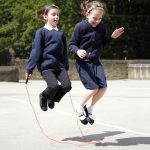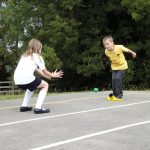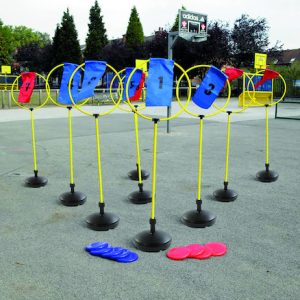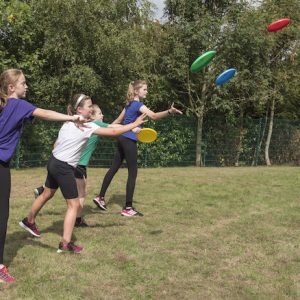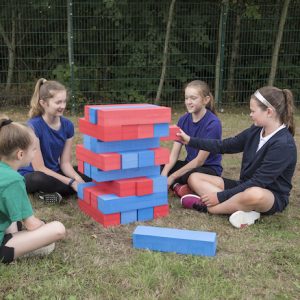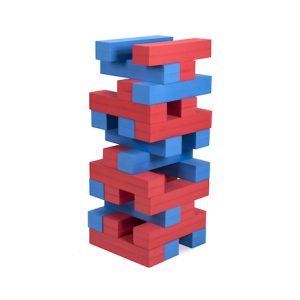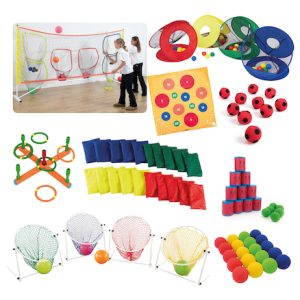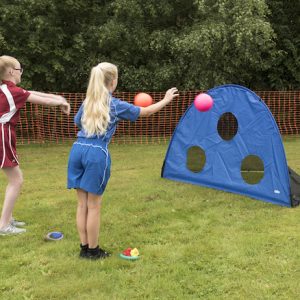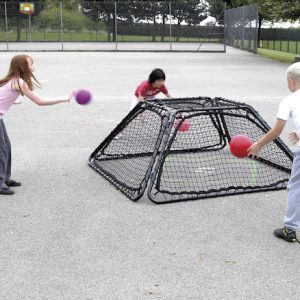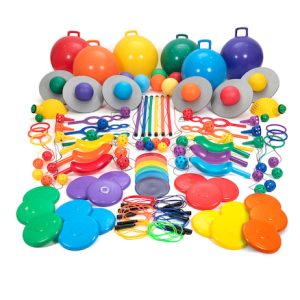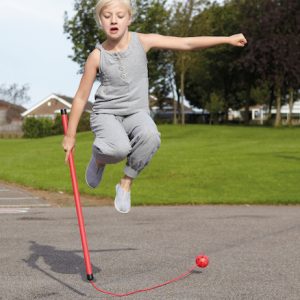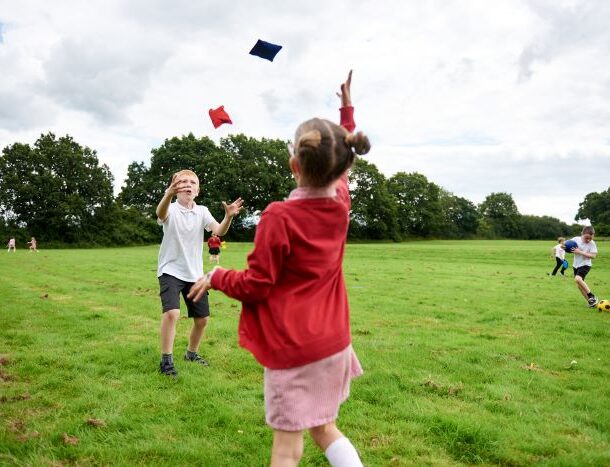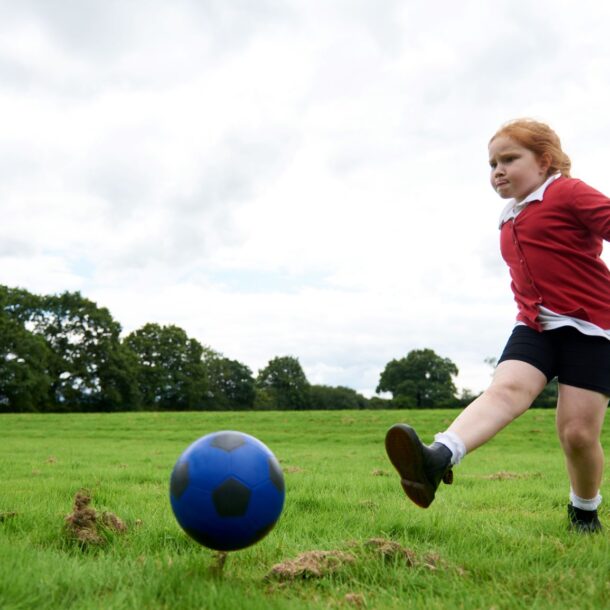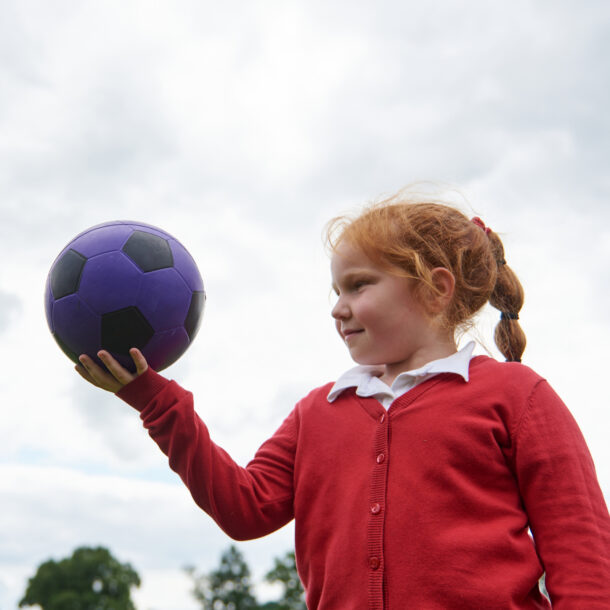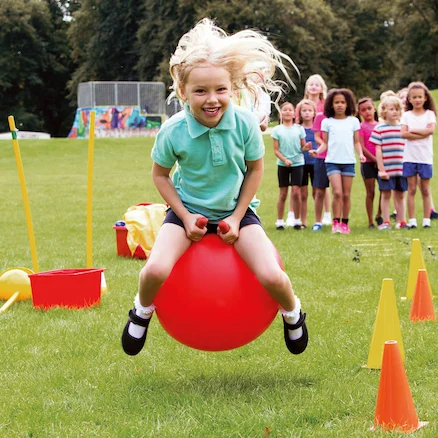Why is 60 minutes of physical activity a day important?
60 minutes of physical activity a day is important and the UK Chief Medical Officers recommend that all children and young people should take part in moderate to vigorous intensity physical activity for at least 60 minutes every day.’
Some reasons behind this include:
- Developing motor skills and coordination.
- Promoting spatial awareness, confidence and self-esteem.
- Encouraging children to build healthy habits and lead active healthy lives, reducing future health risks.
- Improves skills needed for academic tasks such as memory and concentration.
- Encouraging teamwork and communication skills.
Government guidelines suggest that schools can use their PE and Sports Premium to:
- Embed physical activity into the school day by encouraging active break times.
- Provide targeted activities or support to involve and encourage the least active children.
- Help to provide equal access for all pupils to a range of sports and physical activities.
Suggested ways to achieve 60 minutes of physical activity a day
Encourage all pupils to engage in physical activity, improve health, fitness, and well-being, provide competitive opportunities and increase interest in a variety of sports.
Here are some of our resources to help you embed physical activity into school life. Entertain your pupils at lunchtimes, in lessons and in after school clubs. All the products have free downloadable activity ideas for you to use, adapt and enjoy.
Flying Discs PE00573
Flying Disc Target video link Terrific Testing Squad > https://youtu.be/sW3M-MU3BV0
With bases, poles, target rings, numbered flags and flying discs, the Flying Disc Target Course game is perfect to maximise opportunities to engage pupils in physical activities and understand the importance of health and fitness.
- The Flying Disc Target game can be used across the curriculum.
- Enjoy inventing games.
- Practise throwing, catching, and aiming skills and encourage pupils to engage in competitive and cooperative physical activities.
Follow the link to explore a variety of ways to use the Flying Discs like these examples:
Flying Disc Number Game
- Number the targets- could use multiplies of chosen X tables.
- Players move around playing area trying to score in the targets.
- Could go through the targets in order, or a caller could call out the calculation and the winner is the one to hit that target first.
- Or one player throws the disc in the air, calling out a number from one of the targets. The other players try to catch it before it hits the floor. If no one catches it, then the caller can claim it. That person throws the disc to that target. If they hit it, then they score that number.
- Whoever has the greatest score wins.
Flying Disc Golf
- Arrange the targets out like a golf course, with different distances and obstacles.
- Each individual or team has a flying disc and tries to hit each target in as few throws as possible.
- The score is the total number of throws for all the targets.
- The lowest score wins.
(Have fun setting up different courses with different obstacles around the course.)
Giant Foam Blocks PE10257
With 14 red blocks and 14 blue there are many playground games that can be invented. They are a great way to encourage children to use their imaginations and develop creative and problem-solving skills.
Great for:
- Developing creative thinking.
- Giving children opportunities to use their imaginations.
- Encouraging problem-solving skills.
Use to build forts, create giant art sculptures, solve puzzles, create obstacle courses, dens and much more.
Perfect for indoor and outdoor games, these giant foam blocks are ideal for open-ended learning experiences. Follow the link to discover ideas for ways to use such as:
Foam Art
- Use the foam blocks to create different shapes, patterns, and sculptures.
- Use imagination to make an animal, vehicle, building or any other big art.
- Display the creations and share stories behind the ideas.
Playground Bumper Target Kit PE10263
A big kit with big ideas for developing all kinds of throwing and aiming skills. There are many playground games that can be played with the Playground Bumper Target Kit. With quoits, balls, beanbags. Tipping targets great for developing shooting skills, multi-purpose target and goal practice to encourage interest in sports, 3 in 1 target, shape target net for fun throwing activities, knockdown foam tins to develop overarm, underarm, and rolling techniques, and double-sided target mat for recalling number facts and developing mental fluency. Follow the link to see our suggestions for using the kit and get ideas for teaching techniques such as:
Throwing Technique
- Fingers rotated behind the ball and thumbs turned down.
- Ball held in front of the chest with elbows tucked in.
- Step in the direction of the pass and extend arms out in front, pushing the ball from the chest.
Rolling Technique
- Aim non-rolling arm at target and rolling arm holding ball at side of body.
- The opposite foot to rolling arm forward for balance.
- Lower body by bending knees.
- Bring rolling arm back behind body and swing it forward, keeping it in a straight line, to release the ball.
Quad Bounder Rebounder PE00583
The Quad Bounder Rebounder is a fun and versatile piece of equipment. It has four panels that can bounce back objects aimed at them. The panels can be set up with four sides, three sides or as four individual stations against a wall. It can be used for various activities and games and is easy to pack away and store.
Perfect for:
- Improving throwing, catching, hitting, and kicking skills.
- Developing reaction and coordination in different sports and games.
- Increasing knowledge and understanding of health and fitness.
- Motivating pupils and building confidence and interest in sports.
Ideal for individual skill activities, pairs, or small group work, or for team games. Follow the link to get some ideas for using such as:
Control the Ball but not on the Floor!
- Play keep-me-ups throwing or kicking the ball against the rebounder not letting the ball touch the floor.
- Count the passes made without the ball touching the floor. How many can you do? See if you can beat your score each time or play against a friend or in teams, totaling everyone’s score.
Quad Goal Score
- Take turns shooting a basketball, rugby ball, football, hockey ball, etc at a rebounder panel.
- The teams can use different distances to challenge themselves.
- The team that scores the most goals wins the game.
- You could also use a goalie to try to stop the ball from hitting the rebounder.
Quad Cricket
- Divide into two teams, batters, and fielders.
- The batting team stands facing one of the rebounder panels. A cone is set up for the batters to make their runs. The fielding team stands around the rebounder, trying to catch the balls.
- The batting team throws a cricket ball at the rebounder and then runs to the cone. How many runs can they make before the fielders catch the ball or return it to their fielder positioned by the rebounder?
The game ends when all the batting team have had a go.
Rainbow Playground Favourites PE01836
A colourful array of playground favourites for all pupils to enjoy. With over 70 pieces, enough for over 50 children to play with at the same time!
- Developing fundamental movement skills such as running, jumping, throwing, catching.
- Motivating pupils and building confidence in physical competence.
- Gaining knowledge and understanding of health and fitness.
- Maximising opportunities for team building and turn taking.
- Engaging all pupils.
- Encouraging more interest in sports and physical activities.
Follow the link to see lots of ways to use the kit with ideas such as:
Cross the stream/bog
- Place skipping ropes on the floor parallel to each other and place the coloured spots at different points between the ropes.
- Attempt to cross the stream/bog using the stepping stone spots.
- Try stepping, jumping, hopping from stone to stone.
- Challenge by making the stream wider or placing fewer stepping stones in the stream.
Twirl and Skip
- Twirl and jump skipping challenges.
- Use skipping songs, number rhymes or recite times tables as you twirl and skip.
- Make up routines and dances and play follow my leader.
Try our skipping rhyme.
Jump, Jump,
Jump up and down.
Jump, Jump,
Make a sound.
Can you jump high?
Can you jump low?
Jump, Jump.
Here we go!
Why not encourage children to make up rhymes of their own.
Invent games.
- Split into small groups each with a piece of equipment.
- Set a timer for 5-10 minutes.
- Each group invent a game with the equipment they have been given.
- Each group take it in turns to show their game to the other groups.
- Rotate the equipment and play the other games.
These resources could help to develop or add to the PE, sport, and physical activity that your school provides, giving all children opportunities to experience and participate in a wide range of sports and physical activities.
Have fun using the resources and enjoy the free downloads. If you have any brilliant ideas for using any of the equipment and would like to share them with us, we’d love to hear from you.

